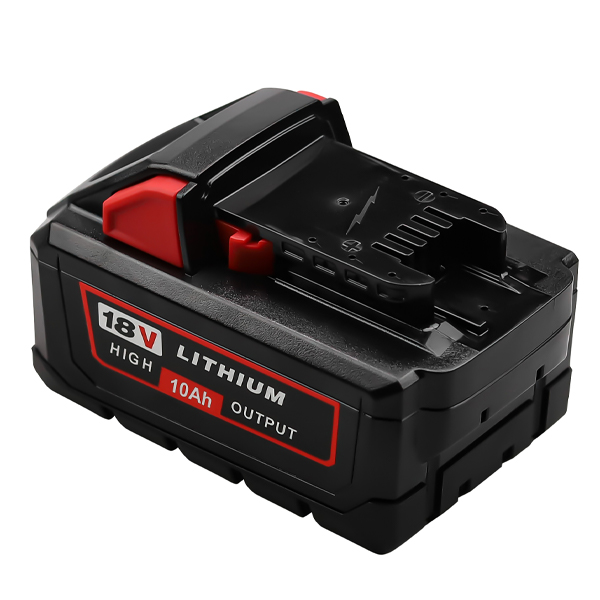
- Products
- Solutions
- Customization
- About
- Resources
- Contact
- Request A Quote
For professionals who rely on Milwaukee power tools daily, choosing the right replacement battery is more than just about keeping tools running. A high-quality battery directly affects tool performance, runtime, and overall safety on the job site. Using the wrong or low-quality battery can lead to inconsistent power output, overheating, or even tool damage. Therefore, understanding the technical and compatibility aspects of Milwaukee replacement batteries is essential for anyone responsible for equipment maintenance or procurement.
Milwaukee offers three main battery platforms designed for different power needs:
Each platform uses a unique voltage system, connector interface, and communication protocol between the tool, battery, and charger. When choosing a replacement battery, it must match the platform precisely—both mechanically and electronically. A battery that fits physically but fails to communicate correctly with the tool may not deliver full power or could trigger error lights.

When selecting a Milwaukee replacement battery, focusing on technical specifications ensures reliable performance.
Always match the battery voltage (12V, 18V, or 72V) with your tool platform. Capacity, measured in amp-hours (Ah), determines how long the battery can power your tool before recharging. For example, a 5.0Ah battery will last longer than a 2.0Ah model under the same load. However, larger capacity also means more weight. The total energy (Wh = V × Ah) gives a more accurate measure of total output power.
High-quality lithium-ion cells are the core of every reliable battery pack. Most professional-grade Milwaukee replacement batteries use either 18650 or 21700 lithium-ion cells.
Top-tier brands such as Samsung, LG, and Panasonic offer consistent performance and lower internal resistance, ensuring longer life and better heat management. Checking for uniform cell voltage (within ±0.05V) is also important for stable discharge behavior.
A Battery Management System protects both the user and the tool. It monitors voltage, temperature, and current in real time. Key BMS functions include:
A professional Milwaukee replacement battery should have a smart BMS that communicates with the tool and charger, maintaining synchronization and ensuring safe charging cycles.
Physical and electrical compatibility are equally important. Before large-scale purchase, verify the following:
Such testing ensures that the replacement battery operates reliably in real job conditions, reducing downtime and maintenance costs.
Battery safety is critical in professional operations. Always select products that meet international safety and transport standards, including:
In addition, replacement batteries should use V0-grade flame-retardant PC+ABS housings to minimize fire risks and feature built-in temperature protection that disconnects power during overheating.
Original Milwaukee batteries offer guaranteed compatibility and proven performance but can be more expensive. High-quality third-party options, however, can provide excellent value if they meet the same technical standards. When evaluating alternatives, focus on:
A reputable manufacturer should be transparent about its components, testing methods, and after-sales support. For distributors or OEM customers, these details reflect long-term reliability.

For B2B buyers, supplier capability is just as important as product quality. A professional replacement battery supplier should have:
Before bulk purchasing, request sample units for testing and documentation such as test reports, compatibility charts, and certification copies. Reliable communication and technical support are essential for ongoing cooperation.
Proper maintenance extends battery lifespan and performance:
Following these practices ensures consistent performance, even under demanding industrial conditions.
Choosing the right Milwaukee replacement battery requires more than matching voltage or size. For professional users, it involves evaluating cell quality, BMS protection, certifications, and supplier reliability. The correct battery ensures consistent power, safety, and efficiency across every job.
RHY Battery offers high-performance Milwaukee replacement batteries built with premium 21700 lithium-ion cells, intelligent BMS protection, and complete international certifications. As a professional e-bike batteries and power tool battery supplier, RHY provides OEM/ODM solutions and technical support for global distributors and industrial users.
Contact RHY Battery today to learn more about reliable and safe replacement battery solutions for your professional applications.